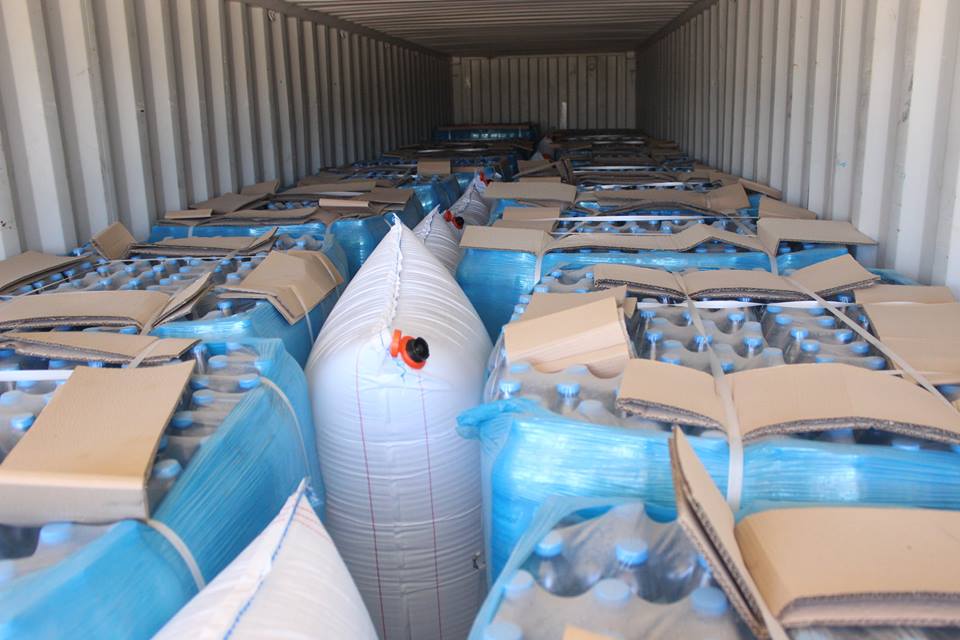By Sami Zaptia.
![Containers, part of . . .[restrict]a money laundering scheme were seized by Khoms police containing mostly water (Photo: Khoms police).](https://www.libyaherald.com/wp-content/uploads/2016/04/118-Khoms-money-laundering-containers1-110416-300x200.jpg)
London, 11 April 2016:
Khoms police reported yesterday that it has stopped containers of goods purported to be part of a money-laundering operation. Its Counter Crime Unit stopped the seven containers after they had exited the city’s port.
The containers were supposed to contain foodstuffs according to declared documentation and hard currency letters of credit (LC).
The Counter Crime Unit did not give the exact value of the transaction but reported that the LC was opened in the ‘’millions of dollars’’. The case was seen as further possible evidence of the widespread money-laundering and ‘’exhaustion of assets of the country and abuse of public funds’’.
Upon inspection, the seven containers were found to contain a front row of relatively inexpensive boxes of tea and the rest of the containers were full of even more inexpensive boxes of water.
In March, Khoms police reported that it had also seized containers supposedly full of household goods, but again these only had a front row of household goods – with the rest of the containers full of the more lucrative fireworks.
It will be recalled that there have been a number of cases over the last year of money-laundering through the opening of hard currency LCs, only for the alleged criminals to import goods either at the fraction of the value of the LCs – or to even send empty containers to Libya.
There have been reported cases where the beneficiaries of the money-laundering LCs have all together abandoned their containers in Libyan ports.
The Central Bank of Libya and Audit Bureau have been conducting a campaign to counter this phenomenon. Critics have accused the CBL of acting too late.
It will be recalled that Libya, which relies on over 90 per cent of its hard currency based GDP from hydrocarbon revenues is going through an acute economic crises.
The crash in the country’s oil production due to its domestic conflict as well as the crash in international crude oil prices has left the country with a deficit which it is funding through its rapidly diminishing foreign currency reserves accumulated during the Qaddafi regime. [/restrict]









